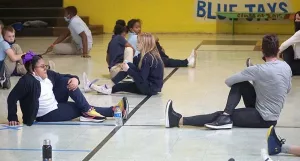Originally published Dec. 14, 2021 in The Record.
By Kayla Bennett
When students returned this school year to St. James School after more than a year of virtual learning, it was clear to the PE teacher that physical exercise and movement hadn’t been a priority.
Some students needed more than two minutes to catch their breaths after summiting the stairs, said Julie Mattingly, who leads the physical education program at the Highlands school.
 Paired with the mental and emotional toll COVID-19 has had on children, Mattingly said, she knew something needed to be done.
Paired with the mental and emotional toll COVID-19 has had on children, Mattingly said, she knew something needed to be done.
Mattingly said students learn better when they’re mentally, physically and emotionally healthy, so she launched a Wellness Program to help the whole child.
The initiative has taken a three-pronged approach: a breakfast program, regular counseling sessions and increased focus on classes to support wellness — physical education and health sciences.
The intention is to build a “whole child initiative — it’s not just addressing the intellectual part of the child but also addressing the need for the social, emotional, mental, physical parts of the child,” Mattingly said. “We all know learning and health are linked, it’s connected; and the healthier the child is the more they can sit down and learn. We want to make sure we do everything we can for our kids and their families.”
Alice Cowley, a nurse who retired from Spalding University, helped launch the breakfast program to provide adequate nutrition to the school’s nearly 125 students.
“There’s not a cafeteria service here, so the children have to bring their own (lunch) and sometimes that works well, sometimes it doesn’t,” Cowley said. “It seemed like we had some children who hadn’t had an adequate breakfast, so we decided we’d do a breakfast program. So we put together foods that are not overly processed; they’re not overly expensive.”
Cowley and another volunteer cut up fruit and make breakfast baskets that they deliver to classrooms every morning, ensuring students have healthy food options.
The second prong, mental health education, is handled by the school counselor.
Andrea McClure, in her first year as the counselor, said the school didn’t have a counselor last year and she’s been able to build the program based on teacher and student feedback. She sees all of the students at least once a week.
“I’ve been working on topics that seem relevant, so we talk about mindfulness, bullying, self-esteem,” she said. “I’ve done individual counseling as needed, conflict resolution, and then I’m starting groups in January. We’re going to do some group counseling like social skills for the younger kids, self-esteem for the middle grades and then anger management for the older grades.”
For the third prong, Mattingly has rounded out the Wellness Program by bringing in organizations from the community to teach students and parents alike about the importance of whole-body health.
Orangetheory Fitness owner Kate Steibling-Davis leads PE classes every other week and teaches students how to create healthy fitness routines that they can do at home without equipment.
Nurse practitioner students from Spalding University conduct regular student health assessments so each child has a health profile. Norton Healthcare attended the school’s Family Fun Night in October to talk about healthy living at home. And a Dare to Care pantry was created this summer to “extend support to the children outside of the school for their homes and their families,” Mattingly said.
St. James has the most diverse student body of the Archdiocese of Louisville elementary schools. This year, more than three-quarters of St. James families applied for and received tuition assistance through the Catholic Education Foundation, as reported by the Record this fall. The average award per student at the school was $3,680.
“Schools play a vital role in the development of students as they grow and learn,” Mattingly said. “Hardships from the COVID pandemic served as a wake-up call to address the need for coping skills and education in mental, social, emotional and physical wellness.”
Mattingly said she hopes this is just the beginning for the Wellness Program. Soon, the school will receive heart rate monitors to “start working with the kids on how to see what’s going on on the inside of your body and see how their health is actually increasing with activity,” Mattingly said.
Students will also get pedometers, and she plans to stage a competition to see who can achieve the most steps.
In the spring the school plans to hold additional Family Fun Nights and a 5k run.
Come summertime, the school will have a tutoring program that spends an hour and a half on wellness and two hours on reading and math, according to Mattingly.
“We’re going to continue the whole education and the food, healthy snacks provided, along through the summertime so the kids can be up and active and not sitting inside and being sedentary.”
Counselor McClure added, “it’s really a time right now that we should pay attention to the emotional health of young children. … We really need to talk to our children about how they’re feeling and we may be behind in academics but we need to see where they’re at emotionally and focus on the whole child and focus on mental health and overall wellness right now because it’s a big deal.”
Make the IHT ZONE heart rate monitor part of your School’s Student Wellness Program
[contact-form-7 id=”27996″ title=”Contact Us Single Column”]


